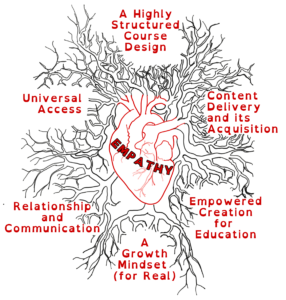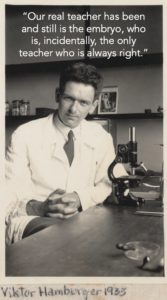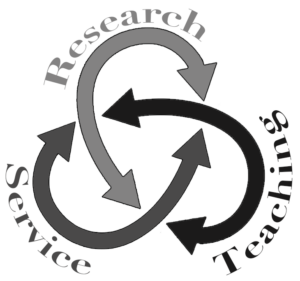My Philosophy: Embracing Empathy To Foster A Growth Mindset.
 I have been fortunate to be a professor at Smith College, where faculty are encouraged to experiment in pedagogical practices to continually improve and provide the most meaningful learning experience possible. In the over 20 years of teaching practice, including pandemic pedagogy, I have come to learn that the most important ingredient is Empathy. If one truly takes an empathetic perspective on all things, whether it’s the individual student, access to materials, assessment strategies and grading, activities in and outside of class, and much more, then it forces a transformation to course design and delivery.
I have been fortunate to be a professor at Smith College, where faculty are encouraged to experiment in pedagogical practices to continually improve and provide the most meaningful learning experience possible. In the over 20 years of teaching practice, including pandemic pedagogy, I have come to learn that the most important ingredient is Empathy. If one truly takes an empathetic perspective on all things, whether it’s the individual student, access to materials, assessment strategies and grading, activities in and outside of class, and much more, then it forces a transformation to course design and delivery.

To learn more about this approach in Empathy-based teaching, please watch this video of Michael Barresi delivering his acceptance talk for the Viktor Hamburger Award for Excellence in Teaching and Education from the Society for Developmental Biology in 2021.
Developing a Positive Feedback Loop between Research, Teaching, and Service for Deep Learning in the Classroom.
Teaching Science is inextricably linked with Research. The excitement of strategically coaxing out new knowledge from a specimen and following the new search born from this knowledge is unmatched. This excitement drives much of my passion as a scholar, teacher and education advocate. I hope to impart this same enthusiasm for discovery to my students though the research opportunities in my lab, through the active learning in my courses, and by the unique experiences created through service.

Whether its introductory biology or my upper-level lecture and laboratory courses in Developmental biology, research is always infused into the course designs. Students are asked to create new knowledge by asking new questions for which they design the ways in which they will approach answer discovery. Students may create novel social media products for educating the public on the biology of COVID19 or have web conference with the led investigators from the science we are studying, alternatively they may create a documentary movie on the latest in organoid technology, or even generate a new knockout fish line to test the role of a disease-related gene.
The work students do in my courses is largely motivated by the meaningful products they produce, products that can benefit others outside of the walls of our classroom. If done right, students often far exceed my expectations and grades as (false) motivators become deemphasized and the desire for discovery and creation lead the learning. In this way, research fuels teaching, and the potential benefits to society encourage service that also fuels learning in diverse ways. This process feedbacks on itself, as the more we learn, the more questions we discover.
The recent COVID19 pandemic has forced most faculty to teach online. In response to this, Dr. Michael Barresi produced a webinar focused on discussing relevant teaching practices geared for professors of Developmental Biology. See this webinar below.